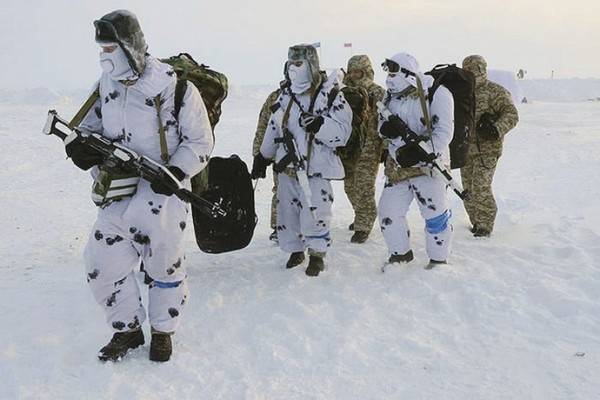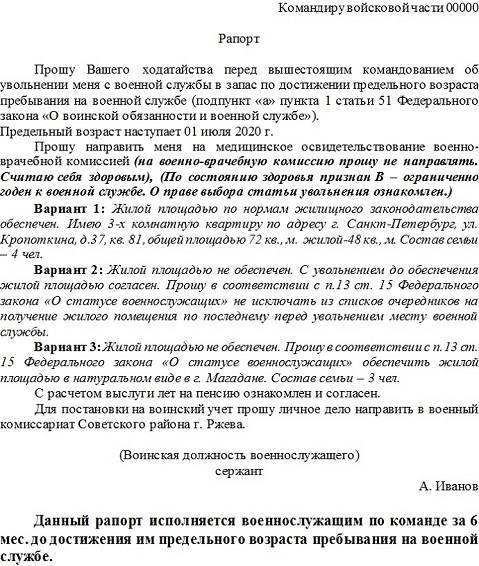The concept of suspension of military service
Let us consider in more detail the procedure for suspending military service. This procedure leads to a temporary suspension of compliance by the parties to the contract with the points specified in it in the following cases:
- election of a military personnel to the number of deputies of various state or municipal bodies on a permanent basis;
- appointment to leadership positions in these bodies;
- assignment to non-military organizations, including international ones, to military training centers at educational institutions for a certain period of time.
When elected to the number of deputies or appointed to leadership positions, the period of suspension of military service during its further continuation is counted:
- in calculating the length of service for the payment of a monthly bonus for length of service;
- during the duration of service to obtain the next military rank;
- in calculation of additional leave time for years of service;
- in calculation of the serviceman's pension service;
- taking into account the receipt of guarantees and compensation determined by law.
If a serviceman who has suspended his service on these grounds agrees to continue military relations, a new contract is concluded with him, he is given his previous position (if there is none, he is offered another position, having received consent), and the interrupted calculation of length of service is restored.
In the case of work in organizations, payments for military specialty are not made, and the calculation of the period of holding a military rank stops. The time worked is subsequently taken into account in the total length of service for assigning a pension for long service.
Where to go
All military personnel are required to periodically undergo a complete medical examination.
A medical examination is carried out in the following cases:
- before signing a contract;
- at regular examination to confirm satisfactory health;
- when complaining about a disease;
- upon receipt of injuries and injuries;
- in case of a sharp deterioration in the health of a serviceman against the background of the development of a chronic disease.
If deviations are detected, the fighter is sent for inpatient treatment to a hospital.
After undergoing treatment, a medical commission evaluates the condition of the officer or soldier and issues a conclusion on his fitness for military duties.
List of required documents
Upon arrival at the Military Military Commission, candidates for service must have the following documents:
During initial military registration or conscription for contract service, the military examination is carried out by a medical board consisting of: a therapist, a neurologist, a surgeon, an ophthalmologist, an otorhinolaryngologist, a psychiatrist, a dermatovenerologist, and additionally for examining women - a gynecologist. If the need arises, additional examinations and consultations with other doctors may be prescribed.
Based on the results of the IVC, the following conclusions are given:
- A - “suitable”;
- B - “suitable with minor limitations”;
- B - “limitedly suitable”;
- G - “temporarily unsuitable”;
- D - “not suitable”.
For conscripts who have undergone initial registration, the collegial conclusion on temporary unfitness is valid for a year.
The procedure for passing the military medical commission
The procedure for passing the IHC for employees of the Department of Internal Affairs, the FSB, and the military is regulated by the provisions of Decree of the Government of the Russian Federation of July 4, 2013 No. 565.
The procedure for passing the military military test upon dismissal from military service, law enforcement agencies and other law enforcement agencies provides for a step-by-step algorithm of actions:
- Stage 1. Receive a referral for a medical examination from the personnel department of the unit. The document signed by the head of the territorial department must indicate the purpose of passing the medical examination (in this case, the fact of dismissal from service);
- stage 2. Preparation and collection of a package of documents that are necessary to pass the medical commission. The exact list of required papers can be obtained from an authorized employee of the HR department;
- stage 3. Direct examination by medical specialists on the basis of a specific medical institution. During visits to doctors, the employee must obtain opinions from an ophthalmologist, neurologist, ENT specialist, surgeon, therapist, dentist, psychiatrist, dermatovenerologist;
- stage 4. Transfer of all documents completed by medical specialists to the authorized secretary of the IHC;
- stage 5. Making a decision on a medical examination at a scheduled meeting of the IHC. A law enforcement officer can be notified of the results of the medical examination through the personnel department of the unit. The employee himself is not given a conclusion.
If there are identified indications, the medical commission may recommend additional examinations of the citizen’s health status.
Dear readers! To solve your problem right now, get a free consultation
- contact the lawyer on duty in the online chat on the right or call by phone: You will not need to waste your
time and nerves
- an experienced lawyer will take care of solving all your problems!
Main types of VVC
The military medical commission is given a large number of responsibilities. In order for them to be carried out more quickly and efficiently, IVCs are divided into categories. Each of them has specific goals and objectives.
A staff unit is created on the basis of a specific military unit that requires constant consultation from various medical specialists. This organization has the right:
- Issue conclusions based on the Regulations on military medical examination.
- Monitor, approve or challenge the conclusions of lower-level IHCs, and, based on newly discovered circumstances, review their own decisions, as well as the conclusions of equivalent commissions (when changing the place of residence of persons subject to examination).
- Check the work of lower-level military commanders and give them instructions regarding issues of military medical examination.
- Receive information from medical and military medical organizations, military units, educational institutions and military training facilities that supplement reports on the results of examinations of citizens.
- Involve medical specialists at various levels to resolve issues related to medical expertise.
- Send employees, military personnel and members of their families for control examination, re-examination or for inpatient or outpatient treatment to the appropriate medical units.
Medical staffing commissions have an official seal and a corner stamp. They are used to certify documents issued by members of the IHC.
Another type of IHC - non-staff - does not have such broad powers, since it is formed on the basis of various medical institutions. Non-staff commissions are divided into permanent and temporary. The first type includes the Military Military Command of the Medical Unit, the Ministry of Internal Affairs, the Central Internal Affairs Directorate, the Internal Affairs Directorate for a constituent entity of the Russian Federation, the Military Military Command of the General Military Command of the Internal Troops and others.
The second category includes commissions based on educational institutions, military educational institutions and others. Non-staff organizations do not have their own seals. To certify their conclusions, they use the seals of the institutions to which they are attached.
A hospital IHC can be formed on the basis of a hospital, clinic, sanatorium or hospital. Its purpose is to examine military personnel undergoing examination or treatment in these institutions.
Cash payments to retired military personnel due to health reasons
If a citizen decides to resign due to health problems, he needs to address in advance the issue regarding the benefits entitled to him by law.
The list of mandatory payments for military personnel is established by the Federal Law “On cash payments to those liable for military service...”. The list of such payments includes the following.
- Cash salary. It is paid to the employee from the date of last payment until the date of dismissal.
- Military personnel who retire after serving less than 10 years can count on payments of 5 salaries.
- Those persons who have worked for more than 10 years will receive payments in the amount of 10 salaries.
- Those citizens who have served at least 15 years can expect one-time payments in the amount of 15 salaries.
- If a person performed military duties for 20 years or more, he is entitled to a benefit in the amount of 20 salaries.
- If a serviceman received a badge of honor at the time of service, then he is also entitled to bonuses for services to the country.
The amount of payments depends on length of service, awards
Due to health problems, the same Federal Law establishes additional financial support, compensation and assistance to pay for treatment. The amount of such support is within one salary for 1 year.
If a serviceman has not used the military uniform assigned to him during the last calendar year, then he has the right to receive monetary compensation (approved by the law of June 22, 2006). But this condition applies only to those military personnel who have served for more than 20 years. One-time payments are due if the length of service has been continuous.
If a military man needs additional financial support to pay for treatment, he has the right to receive it
On top of that, social benefits are provided for citizens serving under a contract for a continuous certain period of time:
- up to 15 years old, 40% of one salary is due;
- from 15 years for each year up to 20 years of experience - 4% of the monthly salary.
Also, military personnel who retired or left due to poor health should receive social assistance. They imply the availability of such preferential rights as free travel on public transport, purchasing train tickets without a queue, and service in medical institutions without a queue. For those who serve in the Far North, additional allowances are provided in the form of a percentage of the official salary.

For military personnel serving in the Far North, allowances are provided for
Dismissal for non-compliance with contract terms
Failure to comply with the terms of the concluded contract (NCC) must be documented and legally recorded. The basic terms of the contract may be violated, both on the part of the command and on the part of the serviceman himself.
The most common grounds are disciplinary violations or criminal offenses. One gross violation or several unresolved disciplinary sanctions may serve as the basis for a command decision to terminate a contract with a serviceman. The main list of gross disciplinary offenses:
- hazing behavior towards colleagues;
- failure to show up for duty for more than 4 hours;
- alcohol or drug intoxication followed by refusal of medical examination;
- loss or damage to military property;
- violation or non-compliance with rules and requirements:
- combat duty;
- guard duty;
- statutes for the protection of public order;
- on working with explosive objects, weapons and ammunition;
- when driving official vehicles;
- leaving the place of official activity without orders.
Proving facts of violation on the part of a serviceman lies with the command of the unit. The investigation is carried out within 10 days from the date of discovery of the NUS. Based on the proven fact, a dismissal order is issued, which the serviceman must be familiarized with personally, as evidenced by his signature on the order. The refusal to sign is recorded in the presence of 2 witnesses in the drawn up act.
Dismissal under the National Criminal Code entails the deprivation of the following payments to the serviceman:
- material assistance;
- redundancy benefits;
- social.
The terms of the concluded contract may not be observed by the second party to the contract - the command. This may be expressed in a violation of the serviceman’s rights to provide adequate rest, the establishment of allowances, bonus payments, and contractual benefits.
You need to protect your rights correctly: first, submit a report to the unit commander about violations of the contract clauses and the requirement to eliminate them. In case of delays and delays, the serviceman has the right to appeal to the military prosecutor's office and the court.
It is important to remember that before a decision is made on the case, you will have to go to work and perform official duties.
Time of passage of VVC
Once again I agree that, according to clause 17.13. (Order No. 76 of June 6, 2005) before being submitted for dismissal, employees are sent for examination to the Military Military Commission in order to establish the degree of suitability for military service. The conclusions of the IHC are taken into account when determining the grounds for dismissal.
Employees dismissed under paragraph “b” of Article 58 of the Regulations, as well as for other reasons, may not be sent to the IHC, if they refuse to be examined at the IHC, documented in a report addressed to the boss who has the right to dismiss these employees.
However, in this same paragraph there is a paragraph that states that if the dismissed employee evades the IHC examination, a note is made about this in the resignation letter and a corresponding conclusion is drawn up, which is signed by employees of the personnel department.
Guilty grounds for dismissal from service
The reason for terminating a contract with a serviceman may be his guilt in committing violations or committing crimes. The basis for making such a decision by the command may be:
- deprivation of a military serviceman of the military rank assigned to him;
- loss (loss) of trust in a serviceman on the part of the commander as a result of:
- a conflict of interest that may arise or has occurred involving a military personnel;
- unreliability (distortion, concealment) of information in the submitted certificates about income, expenses and property obligations of one’s own and one’s relatives, as well as refusal to submit these certificates;
- activities as an entrepreneur;
- entering into the management of commercial organizations on a paid basis;
- participation in the work of management bodies or boards of foreign organizations on a non-governmental, non-commercial basis;
- the presence of foreign bank accounts with family members or the serviceman himself;
- distrust of a superior commander in a superior who does not take measures to eliminate (resolve) conflicts of interest among subordinates;
- punishment by court verdict:
- deprivation of liberty;
- suspended imprisonment for an intentional crime;
- prohibition from holding a military position for a certain period.
Upon dismissal from military service for reasons related to loss of trust, information about the serviceman is included in the register of citizens who are not trusted.
Dismissal mechanism
The dismissal procedure consists of several stages:
- Inpatient (less often outpatient) treatment and examination for professional suitability.
- Issuing a conclusion based on the information reflected in the medical history.
- Drawing up a special protocol in case of unsuitability for further service.
- Submitting a report on dismissal due to health problems.
- Preparation of documents on dismissal from office.
- Termination of the contract with a note about the reason for the termination.
The law stipulates that a citizen can leave the ranks of the armed forces only at his own request. While an employee is undergoing long-term hospital treatment, his dismissal is prohibited.
Sample report
Personal plans regarding passing the military and military qualifications upon leaving service are reflected in the report on dismissal from law enforcement agencies. The sample dismissal report does not require a strictly regulated template. It can be compiled in any form in compliance with the rules for presenting requests of this type.
The structure of the appeal can be presented as follows:

- document header - here the data of the addressee of the application is indicated (position, title and full name of the head, name of the territorial unit);
- the main part declares a request to dismiss an employee, indicating the reason for the action and a link to regulations. It also states here whether the employee intends to undergo the VKK. The main part contains a list of papers attached to the application;
- demanding part - here is a request to issue the employee a package of documents upon dismissal. As a rule, it includes a military ID, a work record book, a copy of the dismissal order, and a 2-NDFL certificate. The employee’s application may set out a request for payment of wages, compensation for unused vacation, and required benefits for which he may qualify;
- the final fragment contains the employee’s data: full name, his title and position in the territorial unit. The report indicates the date and personal signature of the person who compiled it.
A sample report on passing the IHC (and refusal from it) before dismissal can be downloaded here.
List of diseases
When making a decision to dismiss a military personnel for health reasons, the list of diseases according to the International Classification of Diseases (ICD) includes:
- Diseases of the heart and blood vessels (pressure changes).
- Diseases of the nervous system that cause dysfunction of the limbs.
- Problems of the musculoskeletal system that limit movement.
- Acute inflammation of the lower respiratory organs.
- Psychosomatic disorders (including mental disorders).
- Detected tuberculosis.
- Skin diseases.
- HIV infection.
- Venereal diseases.
Based on the results of the examination, the commission issues a conclusion, on the basis of which monetary compensation is paid upon dismissal.
https://youtube.com/watch?v=FIzArcUmW24
The legislative framework
A number of orders of the Ministry of Defense regulated the procedure for passing the military military commission, in particular No. 200. Later they were cancelled, but the procedure itself remained enshrined in regulatory documentation and acts. Basic laws and acts regulating dismissal and grounds for it:
There are also a number of regulations from the Ministry of Defense that regulate the procedure for military military operations and its necessity. The commission itself is necessary for leaving active service for health reasons. Without passing it, care on this basis is impossible.
What other guarantees are there for those discharged from military service?
For military pensioners, preferential free travel on transport and extraordinary medical care have been established. In addition, those transferred to the reserve are entitled to:
- Advantages when hiring;
- Including the period of service in the total length of service;
- Providing preferential terms for mortgage lending;
- Possibility of sanatorium-resort treatment;
- Additional guarantees of job security during company reorganization.
The purpose of introducing such privileges is to ensure the fastest possible adaptation of the military personnel to civilian life.
Although dismissal from the armed forces due to illness is more labor-intensive than a similar procedure in a civilian enterprise, social support measures guaranteed in the future smooth out the difficulties that arise.
Report on dismissal under contract submission procedure
If a serviceman wishes to resign from service, he must submit a report to the combat department or directly to the commander no later than 6 months before the end of the contract. Leaving at one's own request entails restrictions on payments, the use of funds in an investment savings account (NIS), and the need for penalty payments provided for in the clauses of the contract.

Sample report on dismissal of a contract serviceman
The dismissal report must be written correctly, without errors, explaining the reasons and circumstances of the decision, indicating the date of the proposed dismissal and the serviceman’s handwritten signature.
They also indicate the desire to undergo the Military Military Commissariat and the name of the military commissariat, to which they will send a personal file for military registration. A sample report, as a rule, is available in the combat unit. The report submitted to the personnel department must be signed by the commander.
Personnel officers are required to draw up a calculation of the serviceman's length of service, which is used to determine a lump sum payment, the right to use NIS, housing and other benefits upon dismissal.
In the same way, a report on dismissal is provided at the end of the contract. There is no legal requirement to submit a report in this case, but there is no direct prohibition on writing one.
Therefore, if the command determines that this document must be drawn up, then it must be written. To justify the reasons not to continue serving, the following may be attached: a conclusion from the Military Military Commission, documents confirming the presence of family problems.
The report is submitted to the HR department. It is recommended to have a copy on hand (2nd copy) with the signature of the personnel officer confirming the acceptance of documents for consideration.
The certification commission of the military unit considers the circumstances specified in the report and makes a decision on the merits of the submitted request. The period of preparatory measures for the dismissal of a contract soldier is determined by law, which is 3 months. An individual conversation, discussion of circumstances, assignment to required leave and settlements must be made during this period.
The period for consideration of the report by the commander making the decision on dismissal is 10 days. If you want to withdraw the report and continue serving, you need to take into account the specified period and hurry to notify the commander of your intention.
IHC procedure
Initially, the feasibility of the commission is established. Next, you will need to appear at the appointed time to undergo a medical examination.
Military medical examination determines the degree of injury, and also has its own guidance in the form of Resolution No. 565.
The list of diseases limiting military service includes more than ten items, including mental disorders and diseases of the cardiovascular system.
Once the disease is established, the severity is taken into account and suitability is determined. Full procedure:
- receiving a referral to VVC;
- a passage that takes no more than 3 weeks;
- receiving a conclusion and all documents.
It is worth considering that documents are most often sent to the personnel department, where they can be picked up, but they can also be received in person.
If unsuitable, the dismissal process takes place on the specified grounds. If there is limited suitability, then the serviceman himself decides to continue serving in a certain position or to resign.

In conclusion, one of the variants of the disease will be indicated:
- military injury or occupational disease;
- radiation exposure or side effects after it;
- general type of disease.
Next, a report on dismissal due to health conditions is written. After this procedure, the commander must conduct a conversation, which is recorded in a special form. The conversation sheet must contain the following completed items:
- grounds for leaving service;
- length of service;
- conclusion of the commission;
- availability of housing;
- soldier's request.
After this, the conversation sheet is signed and attached to the personal file. Next comes the preparation of the resignation letter in conjunction with other documents. Based on the documentation package, the military unit management issues an order.
Is it obligatory to undergo it upon dismissal from the Ministry of Internal Affairs or the Federal Penitentiary Service?

Based on the examinations, the severity of illnesses is established, the consequences of wounds, injuries, and concussions received in the service are recorded. In some cases, the results of medical examinations may serve as a basis for early termination of work.
At the direction of the departmental unit, the medical examination is carried out on a hospital basis or on an outpatient basis. Referral to the military military commission for an employee who plans to resign at his own request or at the end of his contract in the army is not mandatory.
The decision to obtain a medical examination is the service member’s own initiative. It is also not a strict regulatory requirement to undergo the IVC upon dismissal from the Ministry of Internal Affairs for retirement due to length of service or reaching the age limit.
Expert opinion Irina Vasilyeva Civil law expert
A professional suitability examination is mandatory in cases where an employee is transferred to other law enforcement agencies. If a resigned employee wants to return to service in another structure after some time, passing the IHC will be a mandatory step in joining the authorities.
Other reasons for dismissal
Military personnel serving under contract, unlike conscripts, have the right to retire not only for medical reasons.
A contractor may terminate his service due to the expiration of the contract, due to reaching the maximum age for service or due to length of service. The official reason for dismissal is the reduction of the position held by the serviceman or the decision of the commission that he cannot occupy it in the future. If a citizen violates the rules of the contract or commits a serious offense, he also faces dismissal.
In case of early termination of contract service, the family circumstances of the citizen are also taken into account. If close relatives (children, parents) need constant care or are unable to live at their place of service, the serviceman is discharged from the army.
The most compelling reason for early dismissal (other than medical) is considered to be deprivation of military rank and imprisonment as a punishment for a crime.
In these cases, a medical examination before leaving service is voluntary. The citizen decides independently whether to undergo examination or not and reflects his decision in the dismissal report.
Payments upon dismissal at the end of the contract
A serviceman who leaves at the end of the contract period, after familiarizing himself with the order of the command, receives the following payments:
- final salary payment (in proportion to the days worked in the month of dismissal);
- one-time dismissal benefit (2 salaries for less than 20 years of service; 7 salaries for 20 years or more; government award adds 1 more salary);
- material assistance not received in the year of dismissal (1 salary);
- cash payment for lost property;
- for the remainder of unused vacation days - monetary compensation.
As a general rule, before dismissal, each military personnel must be given leave (main and additional), calculated for the day of dismissal. Staying on leave is counted towards the length of service. The issuance of an order to end service, without providing the serviceman with the leave due, may lead to an appeal to the court and reinstatement of the dismissed person in the service.
Additional leave for personal reasons of 30 days before dismissal can be used by military personnel:
- who have 3 years or less left to serve before the maximum age for service;
- recognized as unfit for service due to health reasons in the year of dismissal;
- falling under organizational and staffing measures.
Answers to frequently asked questions
What amount of compensation is due upon dismissal due to health problems for a military man who is a senior warrant officer by rank and has served for 13 years?
The exact amount of payments cannot be established until the degree of harm caused to the military’s health is assessed.
If a military man retired and has a disability group of 2, what benefits is he entitled to? The disability was acquired while performing military duties. The total number of years of service is 17.
If the cause of disability was not a military secret, then the dismissed citizen is entitled to one-time payments, the amount of which corresponds to 2 salaries.
Is a military person who quits due to poor health entitled to pension payments and how does length of service affect this?
Depending on the length of service, the pension amount will be assigned.

The size of the pension depends on length of service, awards, and the amount of salary
The soldier left his job due to health problems. Experience – 18 years. The dismissal had to be made before April 1, as a result of which a month's leave was granted. The employee did not demand another day of travel. As a result of hospitalization, the military man was not fired. The expected date of dismissal has been postponed until June 1. Vacation days were recalculated. A total of 4 vacation days were not used. Does an employee have the right to extend the vacation period by 4 days at the expense of an additional day for travel and in this case use travel cards?
A serviceman does not have the right to arbitrarily extend his leave.
If I was in line for an apartment as an officer, but was forced to leave the service due to health conditions, am I entitled to an apartment?
If the service is 10 years or more, the military man is classified as needing improved housing conditions, and he has no right to be dismissed without consent, without being provided with an apartment that complies with the legislation regarding housing issues. Also, a military man can receive an apartment not at the location of the military unit.

Even if a serviceman is dismissed for health reasons, he remains on the waiting list for an apartment.
That is, if you were fired, but were not provided with living space, then you continue to remain in line for an apartment.
My brother is in the military. He has a military mortgage. When he is fired for health reasons, the remaining money for the house should come to his account. Do we have the right to pay off the debt using maternity capital and keep the funds for ourselves?
You have the right to spend the remaining money for any needs; you do not need to provide a report.
Consequences of dismissal
https://youtube.com/watch?v=XUKx_M9DtF4
Military pensioners are legally entitled to social benefits (for example, free travel or emergency medical care).
Guarantees enshrined in law include:
- advantage in employment;
- inclusion of service life in the total length of service;
- maintaining the mortgagee's right to preferential loan terms;
- the right to sanatorium and resort services in departmental institutions;
- advantage to protect the workplace during the reorganization of a legal entity.
All payments and guarantees provided for by current legislation are aimed at adapting the former military personnel to civilian life.
Any citizen of the Russian Federation has the right to quit his job at his own request or due to health problems. This right is also granted to military personnel. However, due to the specifics of military duties, when leaving due to illness, it is necessary to follow a special procedure, which is confirmed by visitors to forums whose topics are related to military service.
How and for how long to undergo the IVC?
For the first time, citizens who have reached the age of 17 are registered for military service; their medical examination is entrusted to a draft commission created by the military commissariat. Citizens called up for contract service are sent to the military military registration and enlistment office, and those who enter into another contract are sent to a commission by the unit commander.
Before undergoing a medical examination, conscripts who are registering for the first time must undergo the following diagnostic tests at municipal (place of residence) and state medical institutions:
During initial military registration or conscription for contract service, the military examination is carried out by a medical board consisting of: a therapist, a neurologist, a surgeon, an ophthalmologist, an otorhinolaryngologist, a psychiatrist, a dermatovenerologist, and additionally for examining women - a gynecologist.
Health insurance
All persons liable for military service, without exception, are required to obtain health insurance at public expense. This condition is reflected in Federal Law No. 52. An insured event may include:
- death during military service or contract service, as well as during military training. The compensation is paid in cash and is given by the relative of the deceased employee. The amount of compensation is 2 million rubles;
- if the death of a military man occurred within 1 year after completion of service;
- if death is caused by injury, mutilation or illness acquired during service. The amount of insurance payments in this case is also 2 million rubles;
- if the military man became a group 1 disabled person at the time of performing military duties. In this case, insurance is paid in the amount of 1.5 million rubles;
- An employee receiving disability of groups 1, 2 and 3 within 1 year from the date of dismissal, if this is associated with physical injuries or serious illnesses received during service, is an insured event. The insurance amount is 1.5 million, 1 million and 500 thousand rubles, respectively;
- serious injuries and damage, fractures, memory loss, knife and bullet wounds are also the reason for insurance payments in the amount of 250 thousand rubles;
- minor injuries that became the basis for dismissal are classified as insured events. The victim is entitled to 50 thousand rubles.

If any injuries occur, a serviceman or his relatives may receive insurance compensation
How long does it take to complete the IVC?
Young people between the ages of 18 and 27 who are conscripted into the Russian Armed Forces and wish to enter service under a contract must undergo the Military Military Test. During the spring and autumn conscription, the military registration and enlistment office sends candidates summonses to appear at the medical commission. If you fail to arrive at the Military Military Command without a good reason, this may be regarded as evasion of civil duties with the corresponding consequences.
How long to undergo the IVC depends on the health status of the conscript.
As a rule, young people go through it three times: at the district military registration and enlistment office, the city one, and before leaving for their place of service. Typically, IHCs take place during the day, and the commission itself works for 3 weeks.
By decision of the members of the draft commission, the control IHC of citizens who have received an exemption or deferment from conscription into the Armed Forces due to poor health can be carried out in absentia, after a preliminary examination of their personal and medical documents. If necessary, conduct a face-to-face examination of such persons.
Hello, Fedor.
Regardless of the category of fitness for military service established in the garrison by decision of the military medical commission (in your case, this is category B, which defines you as partially fit), the mechanism for its approval at the level of the main military military commission is the same for everyone. The procedure is indeed very drawn out, and in many individual cases it is poorly organized.
Until now, the results of the IVC from the garrison are sent to the central commission by mail or courier. The latter method significantly reduces its delivery time, but the courier service is used quite rarely. It is the transportation of documents “back and forth” that takes up most of the time.
Drawing up a report
To write a report, there is no specific form to fill out that would be confirmed by law, so it can be written in any form. It is imperative to indicate all valid reasons for dismissal due to health problems, based on existing laws. The necessary documents confirming the reasons for dismissal must be attached to the report.

The military man needs to draw up a report on his dismissal
As a rule, the report should indicate:
- to whom the report is sent – full name, rank;
- Title of the document;
- personal information of the resigning citizen (his last name, first name, patronymic, date of birth, position, rank);
- reasons for dismissal (in this case, for health reasons);
- indicate all certificates that serve as confirmation of health problems;
- references to certain laws, legal acts, Presidential Decrees, etc.;
- number and date of the contract that was signed with the person liable for military service;
- availability of living space, if one is assigned to the military man or he needs a mortgage loan;
- whether he agrees to pay for his length of service;
- the military registration and enlistment office to which the employee’s personal file will be sent.
Features of the report and payments
If a dismissal is made on the basis of “health status,” then several mandatory points are included in the report. The report form itself is not strictly established and can be obtained from the HR department. Items:
- reason for dismissal indicating the impossibility of continuing service;
- documentation supporting the reason;
- two petitions - to send a personal file to the military registration and enlistment office and to provide housing.
When you are dismissed for health reasons, there are a number of benefits regarding housing. If the length of service is more than 10 years, then housing is provided without fail.
If you have served for more than 20 years, the additional payment is equal to 7 salaries. It is also worth considering that in case of an occupational disease, that is, a military injury, compensation is provided for a lump sum type.
For further additional funds, a disability assessment will be required. The direction is also issued by the IHC.
When leaving military service, IHCs are carried out in a number of cases, the most common of which is health status. The commission determines the severity of the injury or illness, as well as suitability for further service. With any fitness restrictions, it is possible to terminate service based on health conditions.
Reasons for passing
The IHC is carried out under various dismissal options. A lot depends on the decision of management. It is also necessary to undergo the IVC when transferring to the reserve from active service, but this will require a direct order from management. Grounds for IHC upon dismissal:
- resignation;
- transfer to reserve;
- inability to continue serving for medical reasons.
In fact, the main reason is the presence of injuries, injuries and diseases that do not allow one to continue serving in the Armed Forces.
Important! For any medical contraindication, there must be a conclusion from the VVK; otherwise, care for health reasons is impossible. This applies even to serious injuries, since the commission determines not only the existence of an injury, but also its degree, which will be required in the future to obtain the correct calculation and registration with medical institutions.. It is worth considering that the referral to the IHC is given by the immediate superiors
It is impossible to pass the IVC on your own. There are several options for starting the IVC:
It is worth considering that the referral to the IHC is given by the immediate superiors. It is impossible to pass the IVC on your own. There are several options for starting the IVC:
- annual type;
- write to the HR department or office;
- contact your immediate supervisor in writing.
When passing the IHC, a verdict is issued that determines the possibility of further service. The entire procedure of the commission is strictly established and must not be violated.
The conclusion of the Higher Military Commission on limited suitability or unsuitability for service is the basis for dismissal, including an independent dismissal at one’s own request.
Deadlines

According to the Instructions for conducting military medical examination and medical examination in the Department of Internal Affairs and Internal Troops of the Ministry of Internal Affairs of the Russian Federation (Order of the Ministry of Internal Affairs of July 14, 2010 No. 523), a three-week period is allotted for this procedure.
Passing the IHC upon dismissal of a military personnel or police officer provides for the possibility of extending the deadline if the diagnosis of an injury or disease cannot be carried out within the maximum permissible time frame.
Doctors are required to notify the management of the law enforcement agency in which the employee worked about the need to extend the period for passing the medical examination.








